AppleTV+ - The Studio : A Dazzlingly Crafted, Scathingly Funny, and Deeply Resonant Ode to the Madness of Modern Hollywood
By Mulder, 24 march 2025
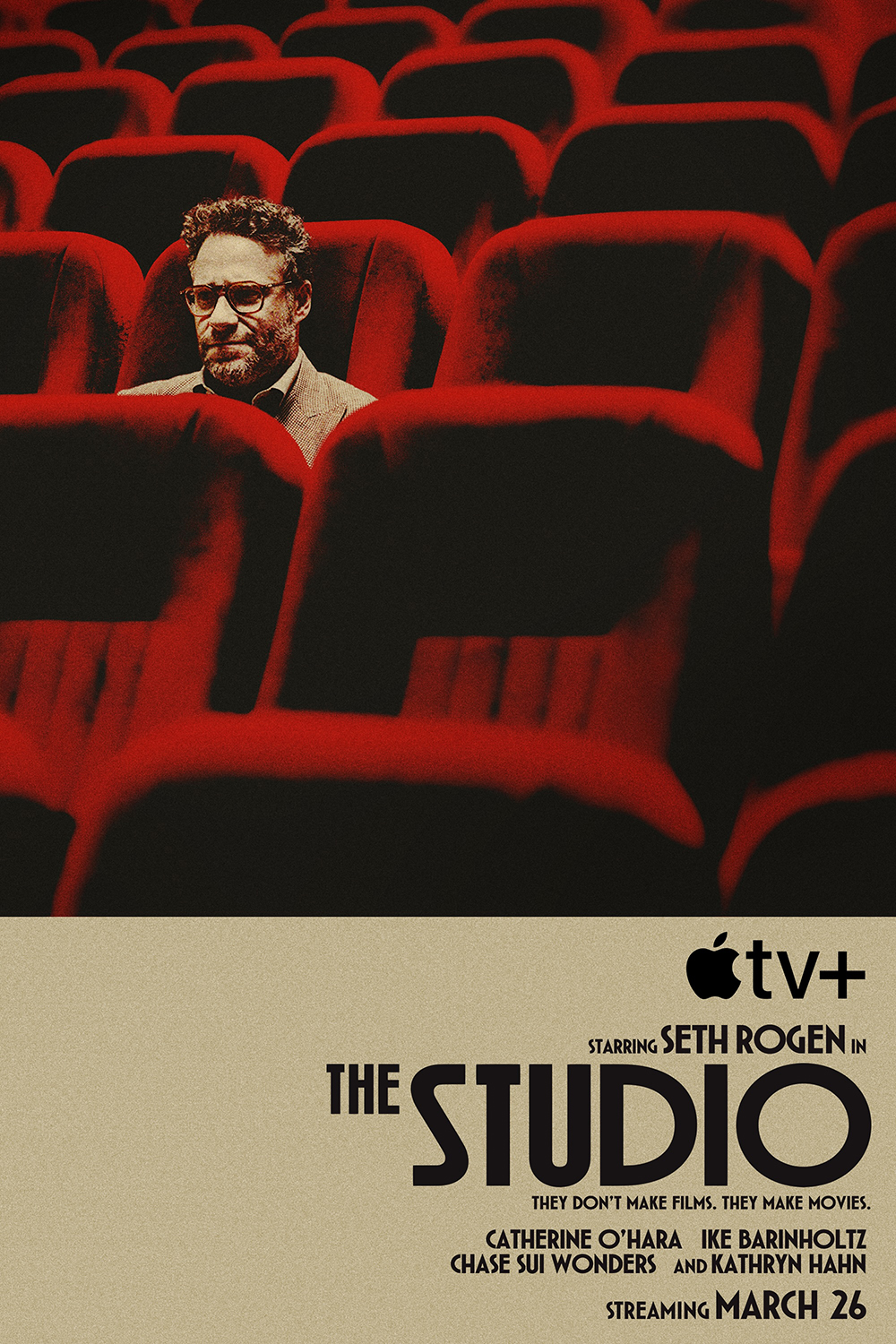
Apple TV+’s The Studio arrives as both a piercing satire and a loving elegy, a series that dares to ask what remains sacred in a film industry perpetually reshaped by commerce, egos, and corporate compromise. Created by Seth Rogen and Evan Goldberg, in collaboration with Peter Huyck, Alex Gregory, and Frida Perez, this ten-episode series is not merely another insider comedy—it’s a robust narrative experiment, an affectionate roast, and arguably one of the finest televisual dissections of Hollywood in recent memory.
Anchored by Seth Rogen’s nuanced portrayal of Matt Remick, the new studio head at the fictional Continental Studios, The Studio opens with a bold visual statement: a virtuosic six-minute oner that signals its technical ambitions while setting the thematic tone. From its first moments, the series positions itself not just as a workplace comedy or industry pastiche, but as a formally daring exploration of a world teetering between legacy and reinvention. Shot with kinetic energy and often structured around long, uninterrupted takes, each episode pulses with urgency and chaos, reflecting the turbulent rhythms of the contemporary entertainment business.
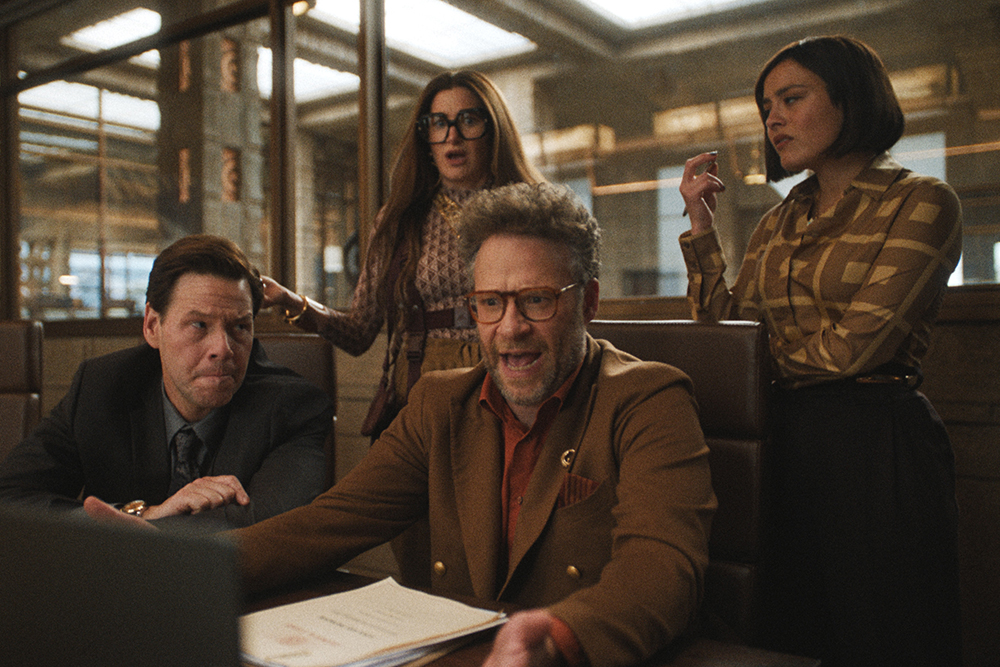
Matt Remick is not your typical power player. A lifelong cinephile promoted under dubious circumstances after the unceremonious dismissal of his mentor, Patty Leigh (the always magnificent Catherine O’Hara), Matt is ill-equipped to navigate the political minefield that awaits him. What follows is a brilliant narrative tightrope walk: Matt wants to champion artistry, but quickly discovers that his real task is to shepherd a multi-million dollar adaptation of the Kool-Aid Man—an assignment that becomes a metaphor for the compromises endemic to modern studio leadership. Rogen’s performance captures this contradiction with precision, blending comic neurosis with genuine pathos. His Matt is at once laughably inept and achingly sincere—a man who still believes in cinema’s transformative power, even as he sells it off in chunks.
What elevates The Studio beyond parody is its meticulous construction and layered storytelling. Each episode takes on a distinct cinematic or thematic lens: a homage to film noir, a behind-the-scenes panic over a one-take sequence, a Golden Globes campaign gone awry. These are not simply genre pastiches; they are commentaries on the very machinery of filmmaking. The show leverages its form brilliantly—episodes often mirror the production challenges they portray, with one standout entry (“The Oner”) filmed entirely as a single take while depicting the filming of a single take.
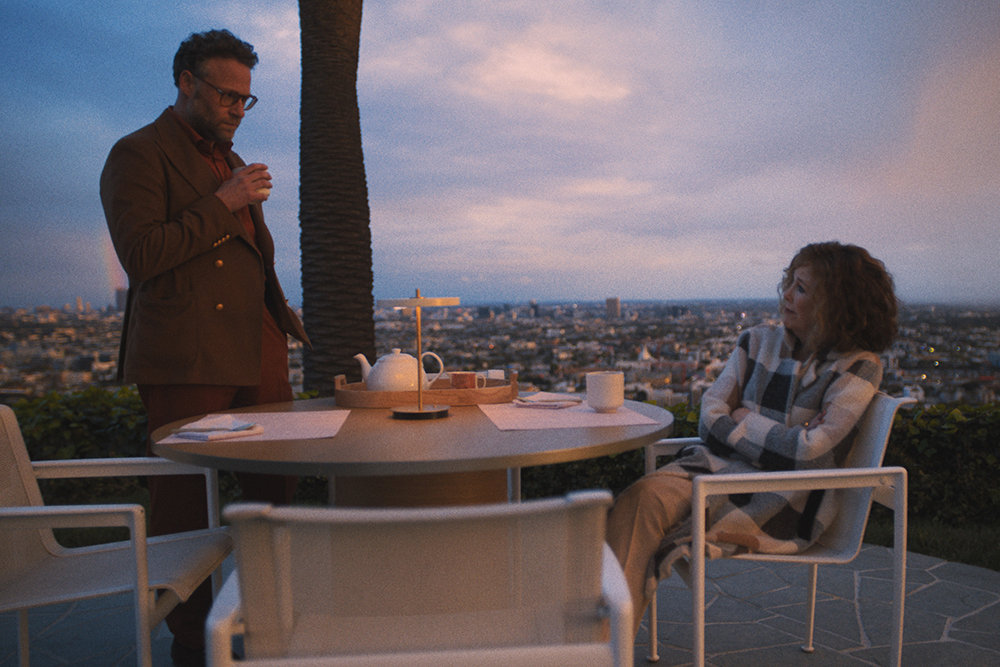
The ensemble cast operates with the precision of a repertory troupe. Ike Barinholtz is superb as Sal Saperstein, Matt’s volatile yet oddly loyal lieutenant; Kathryn Hahn injects marketing executive Maya Mason with both farcical energy and unsettling acumen; and Chase Sui Wonders, as the ambitious Quinn, brings a sharp, contemporary edge to the studio’s generational tensions. The chemistry among the cast members crackles, their interactions brimming with both comedic flair and dramatic weight.
Yet, what truly distinguishes The Studio is the extraordinary array of guest appearances that blur the line between satire and documentary. Martin Scorsese, Ron Howard, Sarah Polley, Olivia Wilde, Charlize Theron, Ice Cube, Adam Scott, and others appear as heightened versions of themselves—participating in the lampooning of the very system that sustains their careers. These cameos never feel gratuitous; rather, they deepen the show's authenticity and thematic complexity. Scorsese, in particular, offers one of the most memorable moments of the series in an emotionally absurd exchange about his vision for a tragically poetic Kool-Aid biopic—an idea so ridiculous it transcends parody and becomes a tragicomic comment on auteurism in a world of branded IP.
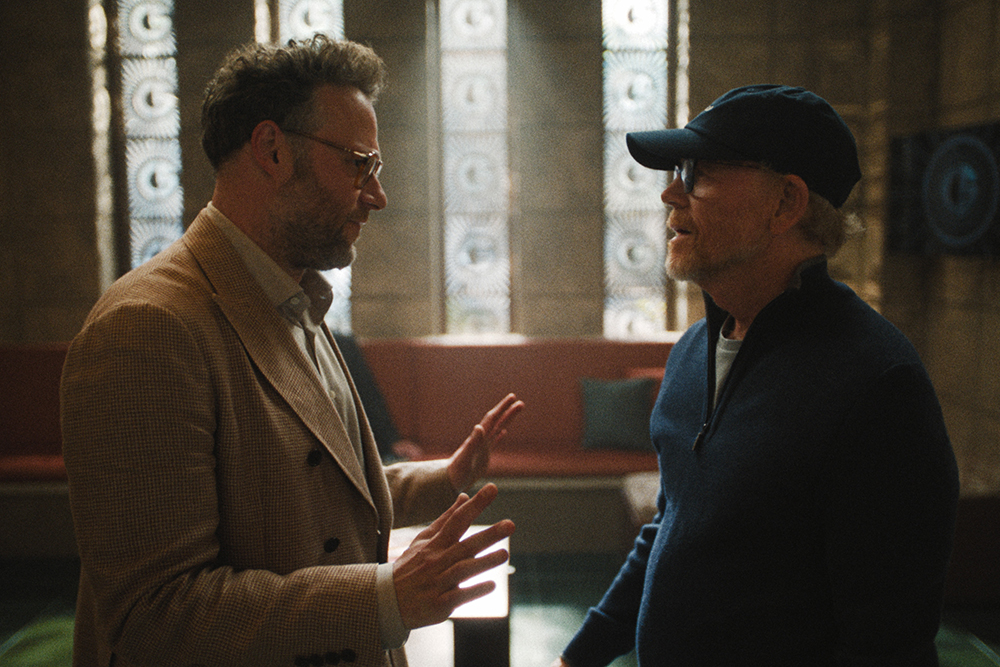
The show also refuses to shy away from the uncomfortable conversations dominating the industry: the fraught dynamics of representation, the invasive threat of AI, the cynical manipulation of awards campaigns, and the growing disconnect between legacy institutions and digital disruptors. In one especially effective episode, Matt finds himself at a charity gala for pediatric oncology and engages in an excruciating debate about the value of filmmaking compared to saving lives. This moment—both agonizing and hilarious—epitomizes the show’s ability to operate on multiple registers simultaneously.
Visually, The Studio is one of the most accomplished comedies in recent memory. The camera glides through soundstages, executive suites, and chaotic sets with elegance and precision. The cinematography is vibrant and cinematic, paying homage to the very aesthetics the series claims are under threat. Filmed on location in Los Angeles, the series immerses viewers in a living, breathing Hollywood landscape—from Art Deco studio buildings reminiscent of Frank Lloyd Wright’s Mayan Revival style to the corridors of awards season campaigning. There is an authenticity to the texture of the show that reflects its creators' deep understanding of the industry’s cultural and architectural DNA.
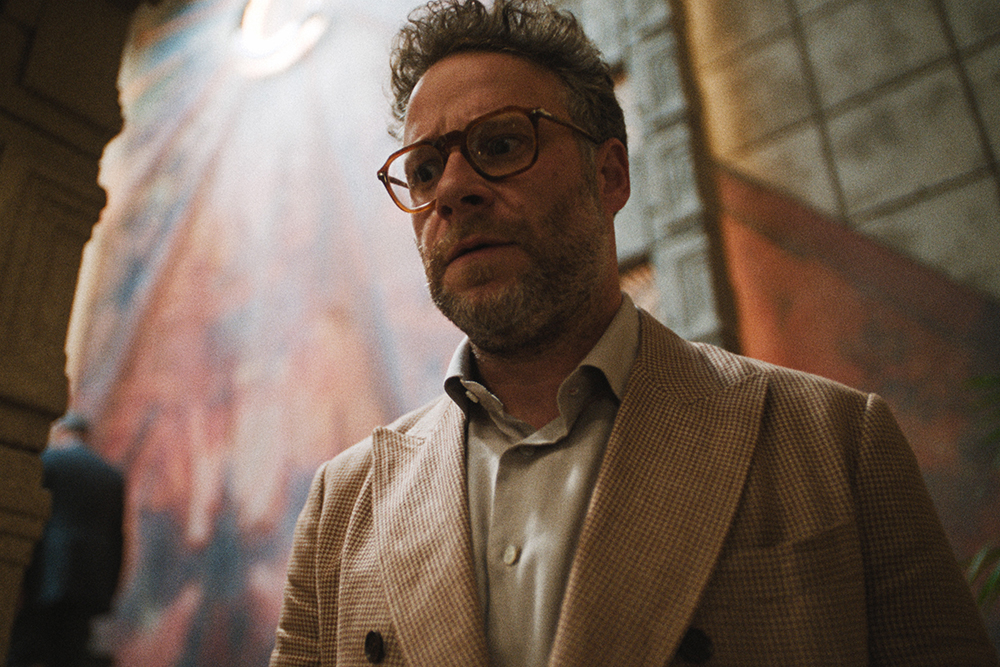
Beneath the biting wit and screwball chaos, The Studio is suffused with melancholy. Matt’s longing to be liked by the very artists he must wrangle, his quiet desperation to be thanked in a Golden Globe speech, his inability to push back against executives like Griffin Mill (Bryan Cranston, in a ferociously deranged performance)—these are not just comedic beats but expressions of a deeper existential anxiety. Is there still space in Hollywood for people who love film for its own sake? Or has the system become so commodified that belief in “the grain” is merely performative nostalgia?
The finale, set at a Vegas CinemaCon-like convention, brings the season’s tensions to a crescendo. It’s here that the absurdities reach their peak—hallucinogenic misadventures, marketing disasters, and rumors of corporate acquisition converge in a perfect storm of incompetence and ambition. And yet, even in its most chaotic moments, The Studio clings to a sincere, almost utopian vision of what cinema could still be. It is, ultimately, a show made by people who love movies—furiously, foolishly, and without apology.
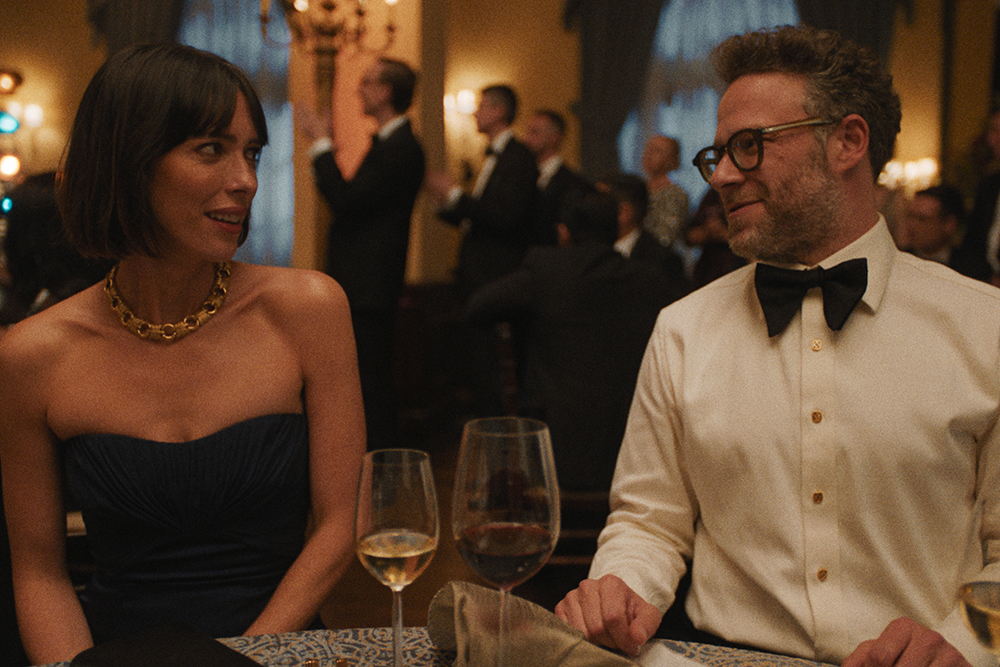
The Studio is not just a great comedy; it is an audacious and deeply personal work of television. Its intricate structure, technical bravado, and emotional intelligence mark it as one of the year’s most accomplished series. For those immersed in the film world, it is a treasure trove of references, gags, and insider truths. But even for general audiences, it offers something universal: a poignant and hilarious exploration of what happens when dreams collide with reality, and when passion must navigate pragmatism. If, as Patty Leigh says in the pilot, “when you make a good movie, it’s good forever,” then The Studio may well have achieved something enduring—an unflinching yet affectionate snapshot of a crumbling industry still striving for greatness.
Synopsis :
Matt Remick is the new director of Continental Studios, a struggling production company. While their films struggle to survive and remain relevant, Matt and his team try to overcome their own uncertainties while dealing with the narcissistic artists and cowardly business leaders they encounter, never losing sight of their tireless desire to make great films. Hiding their panic behind their clothes of power, each party, set visit, casting decision, marketing meeting and award ceremony is the occasion for a brilliant success or a catastrophe that will put an end to their career. By eating, sleeping and breathing “films”, Matt has the job he has dreamed of all his life, and that could well be his downfall.
The Studio
Created by Seth Rogen, Evan Goldberg, Peter Huyck, Alex Gregory, Frida Perez
Directed by Seth Rogen, Evan Goldberg
Starring Seth Rogen, Catherine O'Hara, Ike Barinholtz, Chase Sui Wonders, Kathryn Hahn
Composer : Antonio Sanchez
Executive producers : Seth Rogen, Evan Goldberg, James Weaver, Frida Perez, Peter Huyck, Alex Gregory, Alex McAtee, Josh Fagen
Producer : Jesse Sternbaum
Cinematography : Adam Newport-Berra
Editor Eric Kissack
Production companies : Coytesville Productions, Point Grey Pictures, Lionsgate Television
Network : Apple TV+
Release March 26, 2025 – Present
Running time : 25–44 minutes
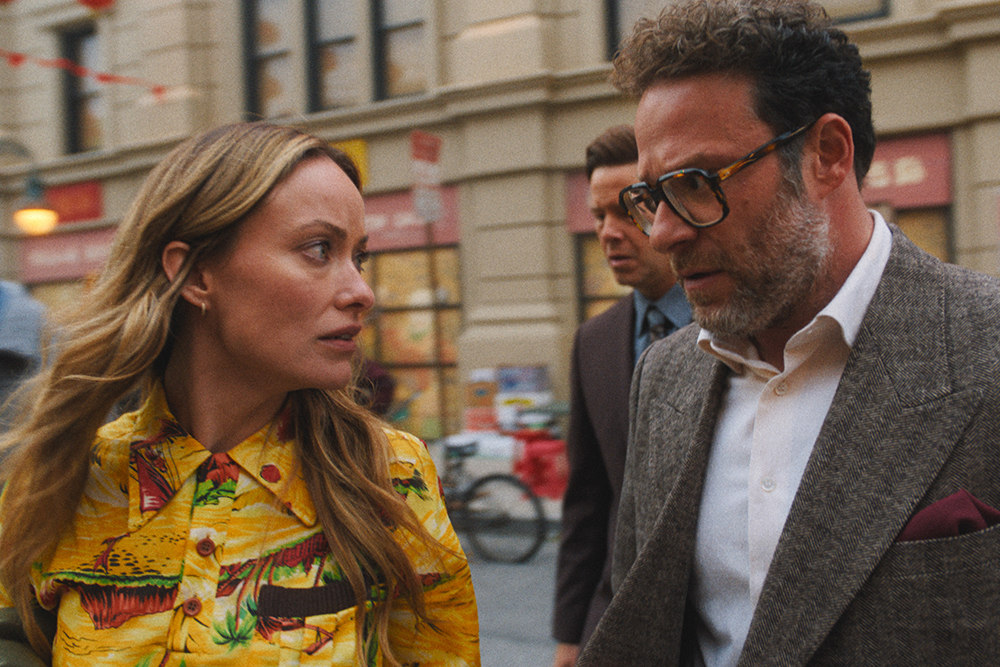
Photos : Copyright Apple TV+

